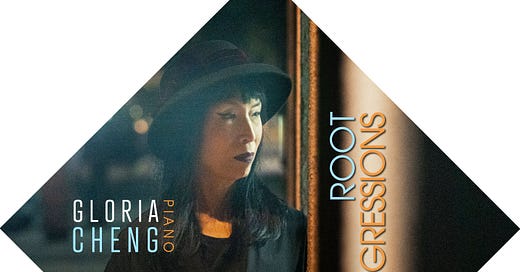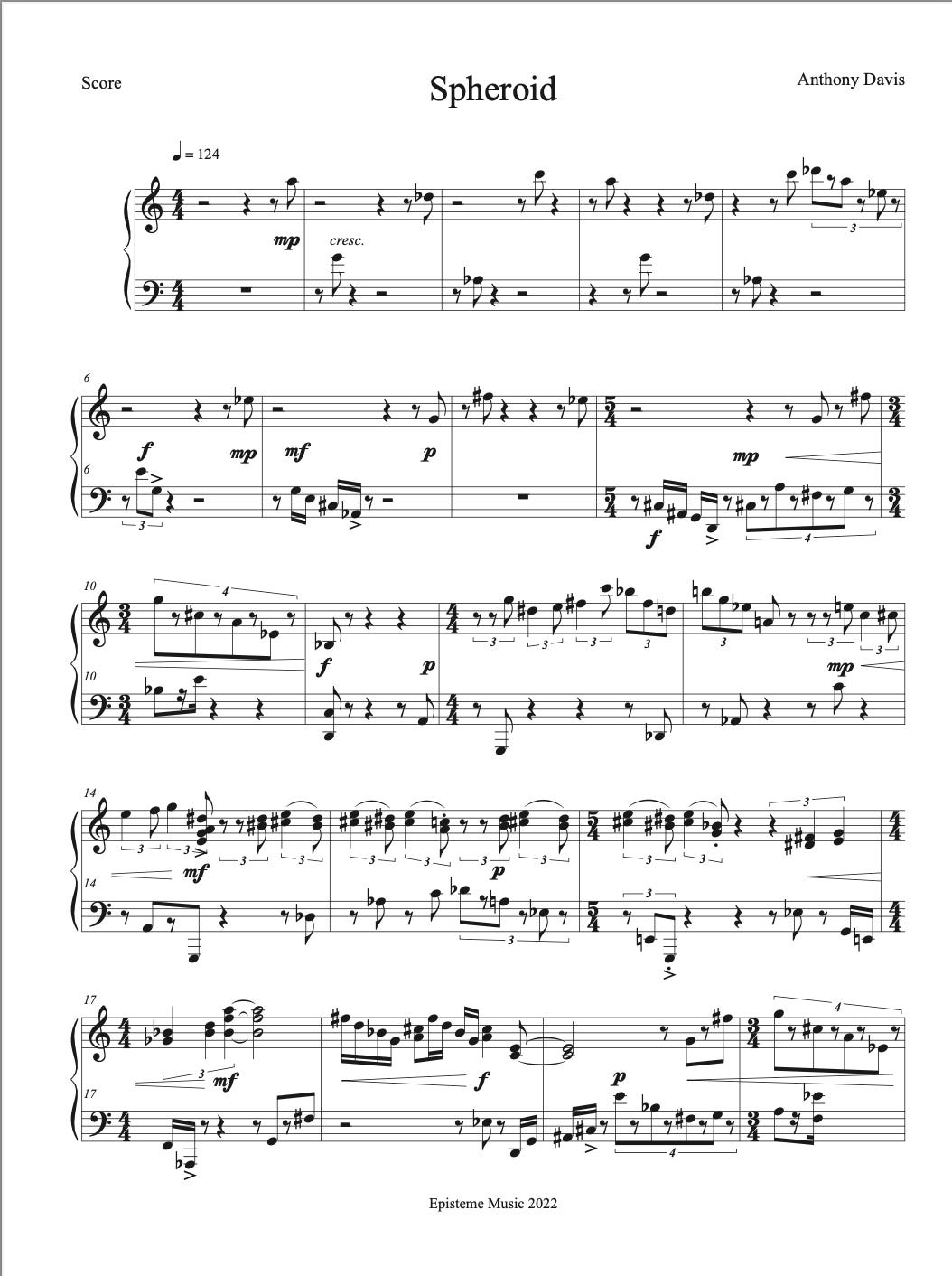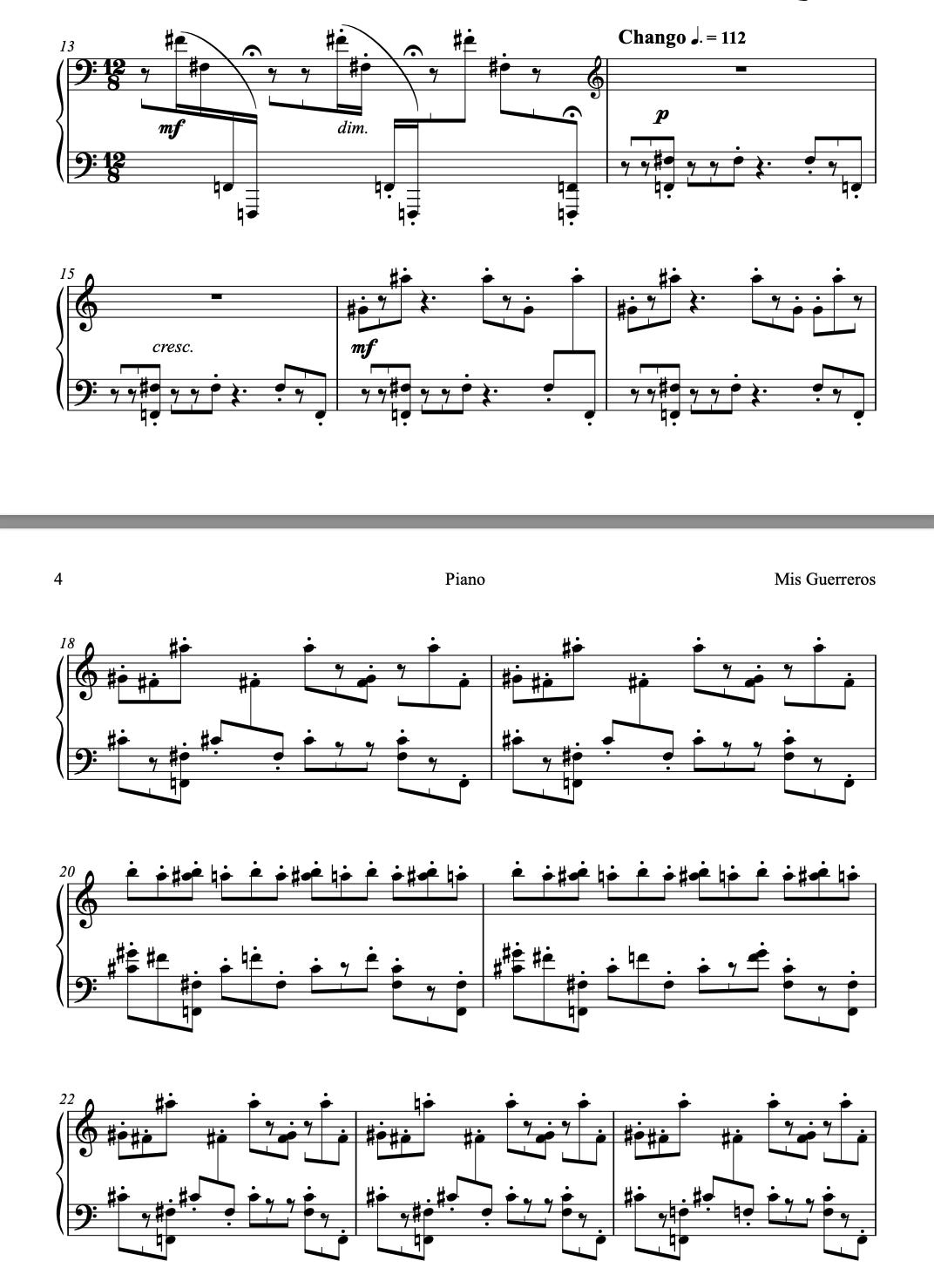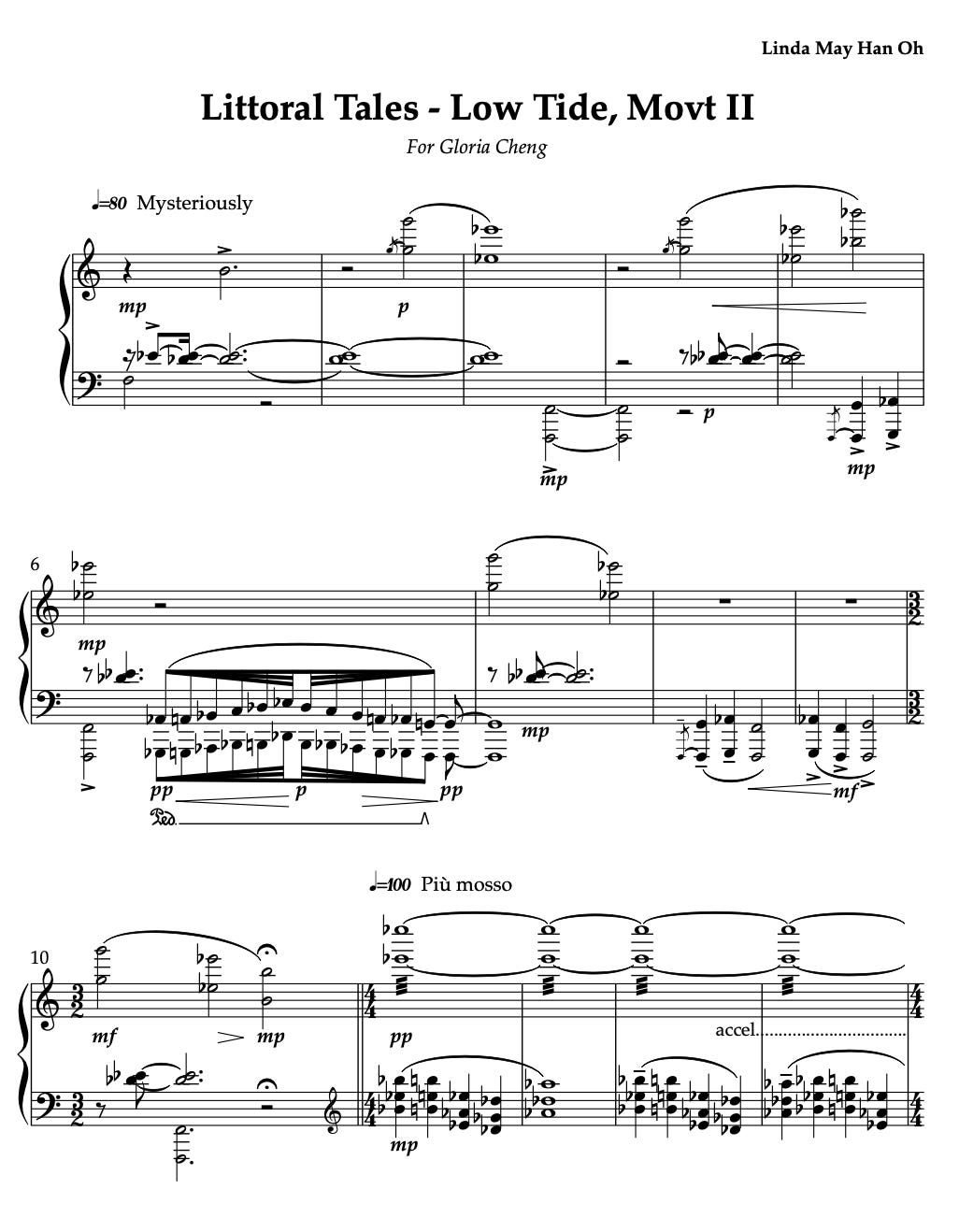TT 488: Gloria Cheng ROOT PROGRESSIONS
new album of progressive piano music by Anthony Davis, Jon Jang, James Newton, Arturo O’Farrill, Linda May Han Oh, and Gernot Wolfgang
Biophilia Records is an energetic boutique label co-run by Fabian Almazan and Jessica Wu; Almazan is a significant jazz pianist and the label has previously focused on the big tent of “modern jazz.”
Now there’s Root Progressions, a selection of “classical” piano music performed by virtuoso Gloria Cheng:
…She has commissioned six master improvisers – Anthony Davis, Jon Jang, James Newton, Arturo O’Farrill, Linda May Han Oh, and Gernot Wolfgang – to compose fully-notated solo works for her. Says Gloria, “My interest was to experience what they might choose to express in a fixed, contemporary classical medium.”
There’s a long history of notating vernacular sounds for classical recitals, and frankly this is a history that keeps getting better over time. Root Progressions offers an exciting overview of the current status.
I reached out to Cheng and she graciously sent me scores. The future is now.
The presence of Anthony Davis and James Newton together on Root Progressions is meaningful, for they were part of an important avant jazz movement in the late 1970s into the 1980s. Together with Abdul Wadud they recorded one of the key documents of the era, I’ve Known Rivers (1982).

Gloria Cheng sent me this image along with the scores, a cover photo for CRYSTAL TEXTS, the rare James Newton/Anthony Davis duo LP released in 1979: “They are standing outside of the Pompidou Center in Paris and looking towards Xenakis’s Polytope.”At this point, Anthony Davis is better known as a prize-winning opera composer (X, The Life and Times of Malcolm X and The Central Park Five) than as a working jazz pianist. The commission from Cheng gave him the opportunity to check in with writing some jazz piano music. Piano Heaven pays thoughtful and relaxed tribute to three icons.
On the page, “Spheroid” might look like conventional disjunct modernism, but the notes are actually connected to Thelonious Monk. The sympathetic touch of Cheng (and the excellent engineering of Judith Sherman) gives the work a charismatic glow. As the texture settles down, Davis writes more like an old pop song as seen by Thelonious.
“Turquoise” is a bluesy number for Duke Ellington. Great tune.
Nobody connected modernism to improvisation like Cecil Taylor. In the notes, Davis says, “As a pianist, I can say that Cecil Taylor continues to save us and his music has allowed us to be ourselves.” His “Shards for C.T.” is a worthy celebration, played to the hilt by Cheng. In time the rhetoric becomes more spacious and bluesy, synthesizing C.T, Ellington, Monk, and Anthony Davis.
James Newton put down his flute some time ago in order to concentrate on formal composition. His scores have grown grander and more detailed. There is usually little overt jazz reference in Newton’s music: his aesthetic is visionary, religious, and very complex, intended for highly skilled classical professionals.
Gloria Cheng is an important Newton advocate who has recorded previous Newton piano pieces. The current offering is Eight Calla Lilies, which Newton describes as “a new 21st-century compositional view of impressionism…beyond Debussy to include Ellington, Messiaen, Monk, Dutilleux, and Coltrane.”
There is tremendous activity on the surface of Newton’s music, but the final effect is rather mediative. Cheng understands the aesthetic. A major work and a major performance.
Jon Jang has collaborated with James Newton and can he heard on record as a jazz pianist with David Murray. Much of his output documents a frank engagement with Chinese heritage, including Ancestors & Sisters on this current recital.
Jang explains:
Ancestors & Sisters (2022) is in the form of a fantasy with a theme and two variations. The theme is based on the Ballad of Hua Mu Lan, a Chinese folk song about a woman warrior, which is dedicated to four unique Chinese American women warriors: the late guzheng (Chinese zither) virtuoso Zhang Yan, pianist Gloria Cheng, poet Genny Lim and the late educator-activist Alice Fong Yu, who was one of the co-founders of the Square in the Circle Club. Inspired by my collaboration with Zhang Yan, I developed a piano technique that simulates the sound of the guzheng, as well as the yangqin (Chinese hammered dulcimer) taught by Shirley Wong-Frentzel.
After the guzheng and yangqin references, Jang smoothly transitions into a variation in the McCoy Tyner idiom! This is a real workout for Cheng, and also a reminder that Tyner and John Coltrane were informed by world music when reinventing jazz circa 1960.
Gernot Wolfgang is a new name to me. He seems to have had a background as a jazz guitarist before becoming a heavily commissioned composer, and surprises with an album highlight, Two Movements. These pieces are pianistic and charismatic. I’ll be listening to more Wolfgang.
“Pendulum” seems to be a kind of blues, maybe not far from Paul Bley.
“Shift” is odd-meter pulsation, amusing and groovy.
At his website, Wolfgang hosts his exceptionally relevant 2005 article, “The Power of Groove.”
The prospect of convincingly incorporating grooves into chamber music or orchestral settings is the single most compelling incentive for me to write concert music. And let me say that I am not aiming at pops. I’d rather like to think of it as Lutosławski having a chat with the members of Weather Report…
(Related trivia: Gloria Cheng made the first recording of the Lutosławski Piano Sonata.)
The remaining two composers on Root Progression are NYC jazz cats known to anyone hip to the current scene. It is unlikely that Arturo O’Farrill or Linda May Han Oh originally set out to write extended formal scores for classical pianists! But they are both naturally creative and engaged, and both clearly relished the opportunity to get in there and assign notes to an interpreter. Kudos to Cheng for making this happen.
Arturo O’Farrill explains:
Mis Guerreros refers to the Orishas (Yoruban Deities) that are assigned to protect you in the spiritual realm. They are Eleguá, Oggun, Ochosi and Osun. One places an altar to the Orishas in a corner of their home and offers gifts of tobacco, rum, coffee, sweets and music played by the maracas. An incantation/prayer is offered, and personal supplications can be added.
The piece is created in four sections meant to reflect the attributes of each deity.
The highlight is a mesmerizing bata section, something like the Bartók op. 18 etudes meets a rumba.
Linda May Han Oh offers the two movement Littoral Tales, a “celebration of the love of water and the ocean” inspired by Geri Allen.
“High Tide” gets off to a roaring start, drumming furiously at the extremes of the keyboard.
“Low Tide” is in the tradition of painterly piano pieces contemplating the sea. It builds to a fairly epic climax; on the last page the score is marked, “waves dissipating.” I’ve heard quite a bit of bassist May Han Oh live and on record, how fun to see what she makes of this idiom. Perhaps she is just getting started?
If you can, support independent artists by buying their music. Root Progressions is on Bandcamp; there is also the option of acquiring a Biopholio™.














Thank you for the fascinating deep dive into this essential new recording!
I finally got to this (we observe Bandcamp Friday). I was impressed by Cheng in the Anthony Davis piece: I thought she had a good feel for the easy swing rhythm. (Amusingly there is a typo in Bandcamp: the Cecil Taylor movement is labeled “piano heave”!!) I was less persuaded by Cheng on the Jang piece: she didn’t have Tyner’s muscularity (but who does?).